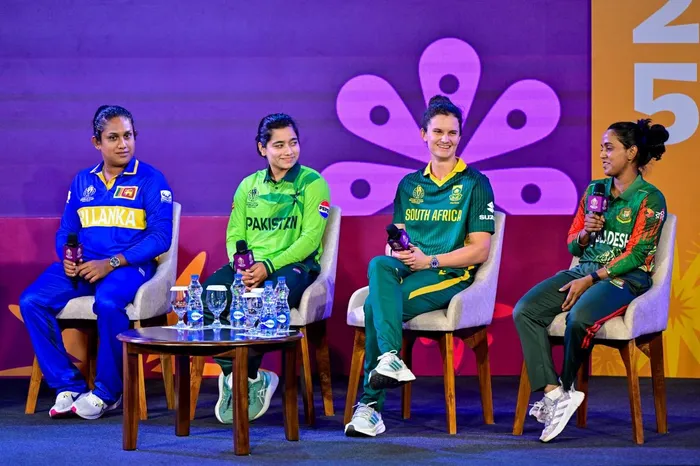Women’s World Cup showdown: Will India shake hands with Pakistan?

India and Pakistan face off in Colombo on Sunday, but questions remain over whether sportsmanship gestures like handshakes will survive the political tensions.
Image: Ishara S Kodikara / AFP
The stage is set for a high-stakes clash between India and Pakistan in the Women’s World Cup on Sunday in Colombo, Sri Lanka. But questions loom over whether the customary on-field gestures of sportsmanship will take place.
BCCI secretary Devajit Saikia told BBC Stumped: "I cannot forecast anything, but our relationship with that particular hostile country is the same, there is no change in the last week. India will play that match against Pakistan in Colombo, and all cricket protocols will be followed. I can only assure that whatever is in the MCC regulations of cricket, that will be done. Whether there will be handshakes, whether there will be hugging, I cannot assure you of anything at this moment."
Echoes of the Men’s Asia Cup
The uncertainty comes in the wake of the 2025 men’s Asia Cup, where India and Pakistan faced each other three times, including in the final which India won. Tensions ran high from the outset: Pakistan coach Mike Hesson said India refused to shake hands in their first encounter, the first since the nations’ conflict earlier this year.
The discord continued throughout the tournament and culminated with India declining to accept the winners’ trophy from Asian Cricket Council president Mohsin Naqvi, who also serves as chairman of the Pakistan Cricket Board.
"We decided not to take the trophy from the ACC chairman, who happens to be one of the main leaders of Pakistan," Saikia told Indian media.
He confirmed that the BCCI plans to raise a formal complaint against Naqvi at the ICC meeting in November. According to sources, Naqvi has rejected repeated requests to hand over the Asia Cup 2025 trophy.
Women’s team faces scrutiny
After India’s comfortable 59-run win over Sri Lanka in the tournament opener in Guwahati on Tuesday, all-rounder Amanjot Kaur was asked if her team would shake hands with Pakistan. She avoided giving a direct answer refusing to be drawn into the subject.
Indian journalist Boria Majumdar suggested on social media that the women’s match could mirror the tensions of the men’s Asia Cup:
"The India-Pakistan game in Colombo will not be another cricket match. It will be a continuation of the Asia Cup, and the only thing that changes is the gender. There will be no handshakes, lots of off-field drama and heightened stakes."
The political undertones surrounding the match have made it one of the most anticipated contests of the Women’s World Cup—not for cricketing reasons alone.
Pakistan prepares in Colombo
Pakistan’s women’s team is based in Colombo for the entirety of the World Cup, as the teams will face each other only at neutral venues in global competitions. This policy predates the April conflict that followed a deadly militant attack on tourists in India-administered Kashmir.
If Pakistan progress to the semi-finals or final, they will also play in Colombo. There has been no official response from the Pakistan Cricket Board regarding how the team plans to handle any provocation.
As the tournament unfolds, all eyes will be on whether India follows the Asia Cup precedent or rises above past tensions, and how Pakistan responds in this politically charged fixture.
Related Topics: